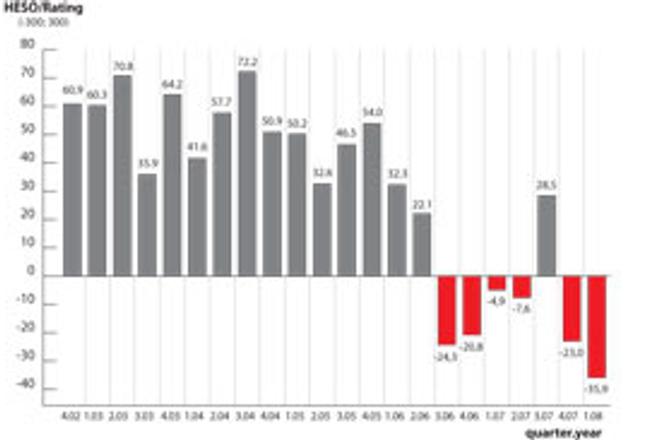The first quarter of 2008 was the worst in terms of social and economic development since the Robert Fico government came to power in July 2006, according to the Assessment of Economic and Social Measures (HESO) released by the INEKO think-tank on May 22 (see chart of measures at right).
INEKO claimed that the overall “atmosphere of reform” had deteriorated, while the measures adopted by the ruling coalition made the January-March 2008 period the worst-rated quarter since INEKO began its quarterly report in 2000.
The Finance Ministry dismissed the report, saying that the positive assessments of international institutions and ratings agencies in connection with Slovakia’s adoption of the euro were more relevant.
The 51 economic experts and academics who put together the INEKO report noted some positive changes, including discounts and the simplification of the process for securing preventive health check-ups for employees of small firms. However, negative measures dominated, including a new universal obligation to pay concessionaire fees to Slovak Television and Slovak Radio, and the consolidation of Slovak Post’s monopoly over parcels under 50 grams and registered mail.
Following the reformist government of Mikuláš Dzurinda, which from 2002 to 2006 radically overhauled the country’s troubled health-care, pension and public administration systems, the Fico administration has braked the reform process and reversed many of the changes introduced by its predecessor. However, it has stayed the course on key economic goals such as the introduction of the euro and the flat income and corporate tax rate, which has encouraged international observers to see its proclaimed social-democratic policies as economically sustainable.



 (source: quarter.year)
(source: quarter.year)